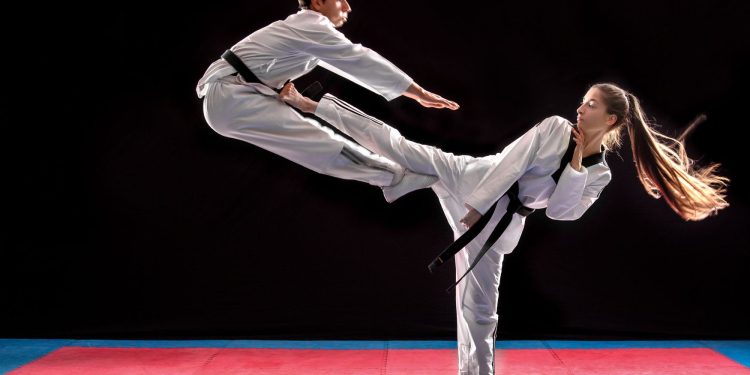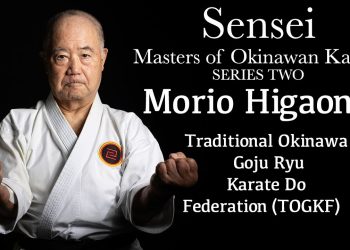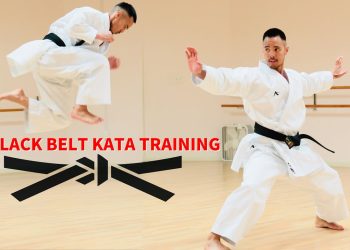Christianity and martial arts—what a curious combination! For some, the mere idea of Christians practicing karate might raise a few eyebrows. There’s a lot to unpack here. If you’re wondering why some believe Christians can’t do karate, stick around. By the end of this article, you’ll see this topic with many shades and nuances.
Is Karate Against Christian Beliefs?
To understand whether karate is compatible with Christianity, we first need to explore the core beliefs and principles of each. Karate, originating from Okinawa, is not merely about physical combat. It’s about discipline, respect, and the harmonious balance of body and spirit. On the other hand, Christianity focuses on faith, love, and the teachings of Jesus Christ. The conflict, if there is one, arises from the spiritual aspects associated with martial arts.
Spiritual Concerns in Martial Arts
Many martial arts, including karate, are steeped in Eastern philosophies like Zen Buddhism and the concept of Chi or Ki. The idea of harnessing an internal force can be seen as contradictory to Christian teachings about spiritual reliance solely on God. But is this really a deal-breaker? Here’s a thought—what if the physical discipline and respect promoted by martial arts actually complement Christian values?
Did you know? Karate literally translates to “empty hand.” It’s primarily a form of self-defense, emphasizing the importance of peace over violence.
The Moral Framework
Here’s the crux—karate, unlike some other martial arts, doesn’t teach its practitioners to be violent. The core karate tenets include humility, respect, and self-control. For many Christians, these values align closely with their faith. However, some traditionalists argue that any non-Christian spiritual elements should be avoided.
Jesus and Self-Defense
The Bible has its share of discussions on violence and self-defense. Remember when Peter used a sword to defend Jesus in the Garden of Gethsemane? Jesus’ response—to put away the sword—is often cited in discussions about violence. However, this doesn’t negate self-defense. Karate practitioners often train to neutralize aggression non-violently.
The Bigger Picture: Cultural and Historical Context
Historically and culturally, the Japanese and Okinawan roots of karate are important. This heritage brings questions about cultural appropriation or dilution, especially when Christian practitioners modify practices to fit their beliefs. Yet, cultural exchange can be enriching. It can bridge differences and foster understanding.
Fact: Karate became widely popular in Japan after Funakoshi Gichin introduced it to mainland Japan from Okinawa in 1922.
Balancing Faith and Fitness
Many Christians find that the physical discipline of karate enhances their spiritual life. It promotes a healthy lifestyle, reduces stress, and improves focus. Can we say these benefits align, or even add value, to one’s faith journey? Absolutely.
Health and Spiritual Well-being
Engaging in regular physical activity is crucial for health—something Christian teachings also emphasize. Karate offers a holistic approach. It strengthens the body and teaches perseverance—vital traits not just for martial arts, but for life in general.
Testimonials: Walking the Path
An interesting angle is hearing from Christians who practice karate. Many say they find it enriches their faith, providing a space for reflection and meditation, akin to prayer. Here’s where personal stories can often paint a clearer picture.
- John from Texas: “Karate taught me discipline that echoes in my faith journey daily.”
- Susan in Florida: “The balance I learn in dojo reflects in my spiritual life.”
The Communal Aspect
Karate dojos often resemble communities, much like church congregations. This sense of belonging and support can be vital for personal growth. Participating in a dojo offers Christians a chance to witness and share faith.
FAQs
How do Christians incorporate karate into their faith? Many focus on the physical and mental discipline aspects, avoiding any spiritual practices contrary to their beliefs.
Is there biblical support for practicing karate? While the Bible doesn’t mention karate specifically, its principles align with self-discipline and respect.
Can karate aid in spiritual growth? Yes, it can enhance one’s focus, patience, and self-discipline, which are beneficial to spiritual practices.
Conclusion
In the end, whether Christians can do karate comes down to personal belief and interpretation. The values promoted by karate—discipline, respect, and self-control—are not inherently in conflict with Christianity. For many Christians, karate is a means to improve physical fitness and mental toughness, without compromising spiritual integrity.
Thank you for reading! I hope you found this exploration insightful. Don’t forget to check out other engaging articles on our website. Stay curious!

| Aspect | Karate | Christianity |
|---|---|---|
| Core Principle | Discipline and respect | Faith and love |
| Philosophical Background | Eastern philosophies | Biblical teachings |
| Community | Dojo | Church congregation |
| Spiritual Elements | Chi and meditation | Prayer and spiritual reliance on God |















